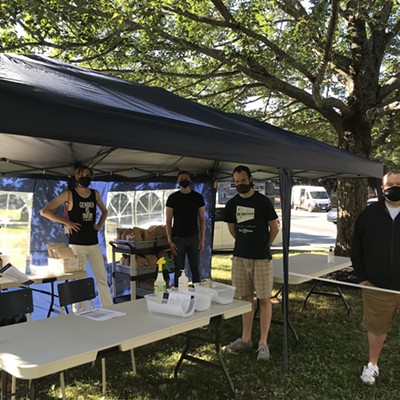OK, I'll admit it: I'm a procrastinator. When I've got work to do, I like nothing more than imagining its potential brilliance in my mind for days on end. Of course, by the time I actually have to sit down and get something done, I'm not only strapped for time (having left everything to the last minute), I am fuelled by mild panic about the possibility that my work may not (surprise, surprise!) meet the impossibly high standards I'm holding it to in my mind.
When you're a student the days can sometimes stretch on in deliciously unscheduled possibility. If you're new to being a (relatively) free agent (that's you, undergraduate friends), learning how to structure your time and avoid the pitfalls of procrastination right off the bat will give you an academic leg up. But that doesn't mean it's easy.
In fact, procrastinating is the easy bit. Because in our wired world, distraction lurks at every turn. It comes in the form of thigh-vibrating text messages and you-just-have-to-watch-this-seriously-it-will-change-your-life messages attached to inane YouTube videos. Distraction tweets and twitters. It Facebooks. Distraction also comes in the form of the most delicious please-linger-over-me-a-few-minutes-longer-in-a-cafe lattes, and "I'll just have one" pints of beer.
There was a time, of course, when students could retreat to the library with a stack of books, some paper and a pen, for a few hours of distraction-free, dedicated study. But anyone who has strolled through a university library lately will tell you those days are long gone. Sure, everyone LOOKS busy, tap-tap-tapping away at their laptops, focused gazes lit by the glow of technologically driven productivity. But peering over a shoulder or two will prove that more than a few of your fellow students are letting their work-sessions drip away with email, instant messaging and other virtual time-sucks.
Doing well in school doesn't mean mean tossing cellphone and eschewing fun of all kinds. Although being a student today takes self-control your parents never had to muster, finding your focus doesn't have to be painful. These tips will practically have your work doing itself:
Set your intention
Yeah, yeah, it may sound a little new-agey, but being clear up front about what you're doing (and why!) may help you put off putting it off.
"Your first strategy should be to start with a goal and a structure," explains Joanne Mills, a psychologist and coordinator of counselling services at Mount Saint Vincent University. Mills recommends that students plan to do two hours of independent study for every hour they're in class. That means, for example, that if you're taking a full five courses (about 15 hours of class), you should be doing 30 hours of homework a week. "Most students think that is outrageous," laughs Mills, "but people need to look at being a student like it's a full-time job. Forty-five hours a week...that's a busy full-time job." In other words, plan accordingly: school work ain't something you should be squeezing into the leftover spaces between other things.
Break it down
Once you have an idea of how much work you have to do, and how much time you should be spending on it, you can schedule yourself accordingly. "Break your project into small chunks and work backwards," Mills recommends. "For example---you have a psych midterm in six weeks, and you know you have 300 pages of reading. It can seem so daunting that you procrastinate, thinking 'Oh, it's not till October.' But before you know it, it's October and it's too much to read." Working backwards---and realizing, for example, that you only need to read 50 pages a week (and that's only 10 pages a day, five days a week!) makes it all a heck of a lot easier to handle.
Use a timer
Once you know what you have to do, beat procrastination by blocking out periods of time for dedicated work. Melanie Farrimond, an instructor at Dalhousie University who (until recently) coordinated Dal's Studying For Success program, recommends committing to working on assignments in 15-minute blocks---even setting a timer if necessary. "It's kind of like tricking yourself into doing work," Farrimond says, "because once you start, you are usually focused enough to keep going...and then 15 minutes becomes an hour."
Take it from me: the strategy works. If it weren't for a website called My Tomatoes (mytomatoes.com)---essentially an online timer---I wouldn't get anything done. It's well worth checking out.
Take breaks
"We know our focus and concentration works well for 45 to 60 minutes," says Mills. Pushing yourself beyond that limit (unless you're really on a roll, in which case, be my guest) can often be unproductive as you lose energy and focus. "If you are losing focus it is OK to take a five-minute break," says Mills. Make tea, go pee---whatever you need to give your brain a bit of a rest. Yes, you can check your email, but be honest: if it will keep you away from your work for longer than five minutes, put it off until you have more time. Procrastination begone.
Be honest
If you've got an IM chat window open, have Facebook on standby and you check your email every five minutes, you probably aren't working as effectively as you could be---no matter what you've been telling yourself. Mills says the key to getting focused and banishing procrastination for good is in creating an environment that is conducive to getting your work done. So, turn off the TV, tell your roommates to be quiet and work at a time of day when you feel your best. And as impossible as it may sometimes seem, resist the urge to be pulled into the endless time-suck we call the internet, no matter how much you be able to justify it as "research."
And heck, when things get really bad, you can always beat procrastination by taking an old school approach: leave the computer and phone at home and hit the library with a notebook and a pen.















